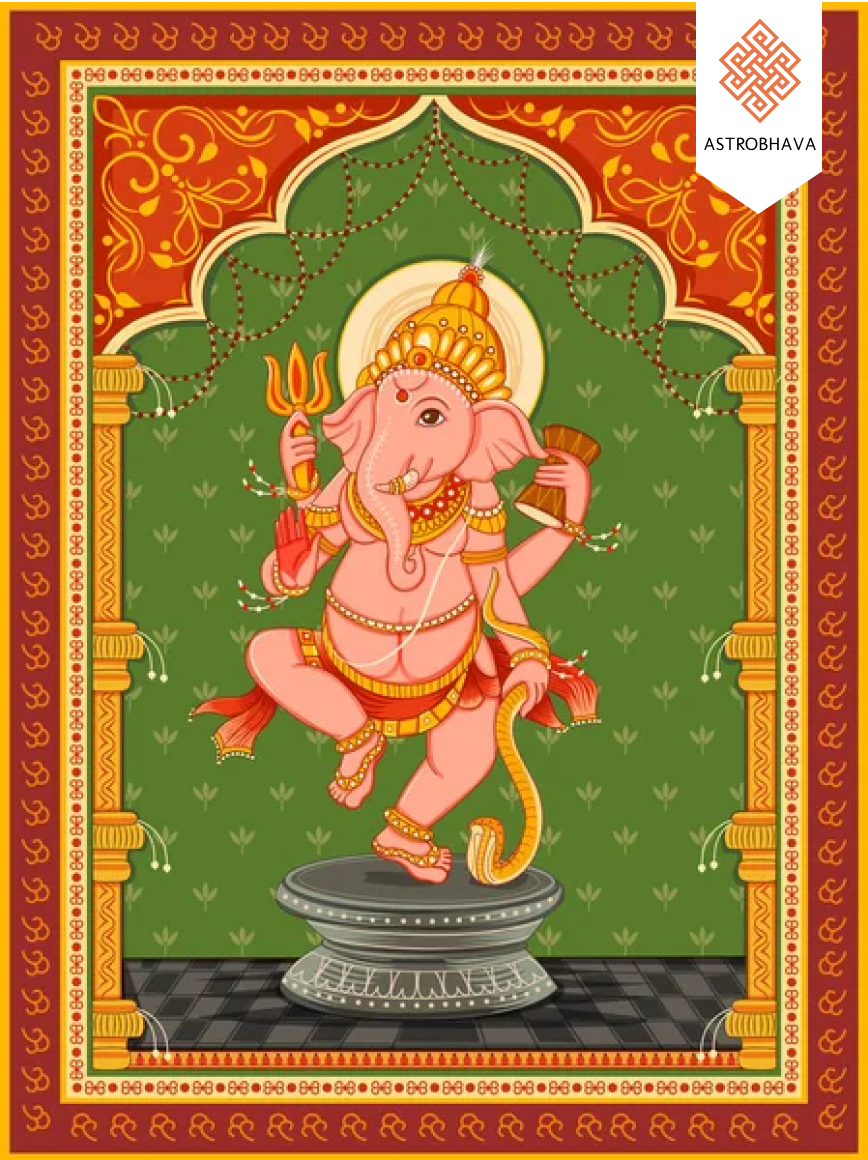
Chaturdashi Tithi 2025
Chaturdashi Tithi 2025
Chaturdashi is observed as a significant tithi or lunar day in the lunar calendar, representing the 14th day in the waxing (Shukla Paksha) and waning (Krishna Paksha) moon phases. Commonly associated with penance, purity, and the practice of sacred rituals, Chaturdashi is significant in many Hindu traditions. Fasting and prayers performed on this day are believed to purify the soul and mind, offering blessings and protection from misfortunes.
Significance of Chaturdashi
Chaturdashi, or the 14th day of the lunar cycle, holds deep spiritual and religious importance. Often connected with the worship of Lord Shiva, this day is a time to seek blessings for courage, spiritual progress, and the removal of negative influences. It serves as a reminder of self-discipline and is considered a powerful day for spiritual cleansing. Observing Chaturdashi is believed to enhance one’s spiritual journey and balance inner energies.
Mantras to Chant on Chaturdashi
- Om Namah Shivaya
This is a simple yet powerful mantra for invoking Lord Shiva’s blessings. Chanting this mantra brings peace, removes negativity, and purifies the mind. - Mahamrityunjaya Mantra
“Om Tryambakam Yajamahe Sugandhim Pushtivardhanam, Urvarukamiva Bandhanan Mrityor Mukshiya Maamritat”
This mantra is recited for protection, healing, and longevity. Regular chanting during Chaturdashi helps in overcoming fears and obstacles. - Om Hreem Shreem Kleem Namah Shivaya
This is a combination mantra that brings the energy of Lord Shiva, invoking prosperity, peace, and protection from adversities. - Om Tatpurushaya Vidmahe Mahadevaya Dhimahi Tanno Rudrah Prachodayat
Known as the Rudra Gayatri, this mantra is for attaining spiritual strength, courage, and divine wisdom. - Om Namo Bhagavate Rudraya
This mantra helps in clearing karmic obstacles and bringing spiritual transformation. It is especially effective when chanted with a focused and calm mind.
Chaturdashi Tithi 2025
| Date Range (2025) | Chaturdashi Tithi Timing (IST) |
| January 12-13 | Starts: Jan 12, 6:34 AM |
| Ends: Jan 13, 5:03 AM | |
| January 27-28 | Starts: Jan 27, 8:35 PM |
| Ends: Jan 28, 7:36 PM | |
| February 10-11 | Starts: Feb 10, 6:57 PM |
| Ends: Feb 11, 6:55 PM | |
| February 26-27 | Starts: Feb 26, 11:08 AM |
| Ends: Feb 27, 8:55 AM | |
| March 12-13 | Starts: Mar 12, 9:12 AM |
| Ends: Mar 13, 10:36 AM | |
| March 27-28 | Starts: Mar 27, 11:03 PM |
| Ends: Mar 28, 7:55 PM | |
| April 11-12 | Starts: Apr 11, 1:01 AM |
| Ends: Apr 12, 3:22 AM | |
| April 26-27 | Starts: Apr 26, 8:28 AM |
| Ends: Apr 27, 4:50 AM | |
| May 10-11 | Starts: May 10, 5:30 PM |
| Ends: May 11, 8:02 PM | |
| May 25-26 | Starts: May 25, 3:51 PM |
| Ends: May 26, 12:12 PM | |
| June 9-10 | Starts: Jun 9, 9:36 AM |
| Ends: Jun 10, 11:36 AM | |
| June 23-24 | Starts: Jun 23, 10:10 PM |
| Ends: Jun 24, 6:59 PM | |
| July 9-10 | Starts: Jul 9, 12:38 AM |
| Ends: Jul 10, 1:37 AM | |
| July 23-24 | Starts: Jul 23, 4:40 AM |
| Ends: Jul 24, 2:29 AM | |
| August 7-8 | Starts: Aug 7, 2:28 PM |
| Ends: Aug 8, 2:12 PM | |
| August 21-22 | Starts: Aug 21, 12:45 PM |
| Ends: Aug 22, 11:56 AM | |
| September 6-7 | Starts: Sep 6, 3:13 AM |
| Ends: Sep 7, 1:41 AM | |
| September 19-21 | Starts: Sep 19, 11:37 PM |
| Ends: Sep 21, 12:17 AM | |
| October 5-6 | Starts: Oct 5, 3:04 PM |
| Ends: Oct 6, 12:24 PM | |
| October 19-20 | Starts: Oct 19, 1:52 PM |
| Ends: Oct 20, 3:45 PM | |
| Nov-04 | Starts: Nov 4, 2:06 AM |
| Ends: Nov 4, 10:36 PM | |
| November 18-19 | Starts: Nov 18, 7:12 AM |
| Ends: Nov 19, 9:44 AM | |
| December 3-4 | Starts: Dec 3, 12:26 PM |
| Ends: Dec 4, 8:38 AM | |
| December 18-19 | Starts: Dec 18, 2:33 AM |
| Ends: Dec 19, 4:59 AM |
Remedies for Chaturdashi
Remedies performed on Chaturdashi can alleviate karmic issues and foster positivity.
- Meditative Silence: Observing silence on Chaturdashi helps reduce mental distractions, offering inner peace and clarity.
- Deep Breathing Exercises: Practicing controlled breathing to reduce stress and balance the mind, preparing oneself for higher spiritual practices.
- Shiva Homa: Performed to honor Lord Shiva, this Homa invokes divine grace to release negative energies and invite spiritual growth.
- Mahamrityunjaya Homa: This is performed for health, protection, and longevity, seeking liberation from the cycles of karma and rebirth.
- Shivling Abhishekam: Performing an Abhishekam on a Shivling with water, milk, and honey purifies one’s energy, invoking blessings.
- Ganesha Puja: Invoking Lord Ganesha at the start of the day can clear obstacles and promote success in spiritual endeavors.
- Om Namah Shivaya: Chanting this mantra strengthens one’s focus and devotion, aligning with the energy of Lord Shiva.
- Mahamrityunjaya Mantra: Regular recitation of this mantra on Chaturdashi is believed to protect from harm and enhance well-being.
Dos and Don’ts on Chaturdashi
Dos
- Observe a Fasting Routine
Fasting is a common practice on Chaturdashi. Opt for a complete fast with only water or a partial fast with fruits and milk. Fasting is believed to purify the body and mind. - Begin with Purification Rituals
Start your day with a bath and cleanse your surroundings before beginning the worship. Maintaining cleanliness is considered essential for Chaturdashi rituals. - Offer Water to Lord Shiva
Performing Abhishekam (water offering) on a Shivling or picture of Lord Shiva is an auspicious act on Chaturdashi. Offer water, milk, honey, and bilva leaves if available. - Chant Mantras with Devotion
Chant mantras with a sincere heart and calm mind. It is recommended to recite the chosen mantra 108 times using a Rudraksha mala for enhanced concentration. - Practice Silence (Mauna)
Observing silence helps reduce distractions and fosters inner peace. It is beneficial to practice silence for a few hours or the entire day to deepen the spiritual experience. - Meditate and Reflect
Spend time in meditation, focusing on personal growth, forgiveness, and gratitude. Meditation during Chaturdashi helps align with the divine energies of the day. - Perform Evening Prayers
Prayers performed during twilight (Pradosh Kaal) are considered highly auspicious. Light a lamp or incense and perform a simple prayer to seek blessings from Lord Shiva. - Engage in Selfless Acts
Charity, feeding the needy, and helping others are considered meritorious acts on Chaturdashi. Offering food or essentials to the less fortunate adds to the spiritual merit.
Don’ts
- Avoid Eating Heavy or Non-vegetarian Food
Refrain from consuming non-vegetarian food, garlic, onion, and heavy or spicy meals. Light, sattvic food is preferred if fasting is not feasible. - Refrain from Gossip or Negative Speech
Avoid gossiping, speaking ill of others, or engaging in unnecessary arguments. Maintaining pure thoughts and words aligns with the spiritual essence of Chaturdashi. - Do Not Consume Alcohol or Other Intoxicants
Abstain from alcohol, smoking, or any intoxicants during Chaturdashi, as these disrupt mental clarity and spiritual focus. Maintaining a clear mind is essential to fully benefit from the day’s energies. - Avoid Breaking the Fast EarlyIf observing a fast, refrain from breaking it before sunset or the prescribed time, as completing the fast adds to the spiritual merit. If health permits, continue the fast until evening prayers or Pradosh Kaal.
- Limit Distractions and Use of Electronics Try to minimize time spent on electronic devices, entertainment, or social media. Instead, focus on meditation, chanting, and inner reflection to make the day more spiritually enriching.
- Do Not Engage in Excessive Physical Activity
Avoid strenuous activities or unnecessary exertion, as Chaturdashi is a day for inner peace and spiritual practices. Light activities or rest are preferred to maintain energy for prayer and meditation. - Avoid Holding onto Negative Thoughts or Resentment
Chaturdashi is a day of purification and letting go. Release grudges, anger, or resentment and focus on forgiveness and gratitude to align with the day’s positive vibrations. - Refrain from Engaging in New Ventures or Major Decisions
Initiating new tasks or making significant life decisions is generally avoided on Chaturdashi, as it is a day dedicated to inner work and reflection rather than external actions.
Benefits of Chaturdashi Fasting
The benefits of observing Chaturdashi, especially through fasting, chanting, and spiritual practices, are profound.
- Spiritual Cleansing and Renewal
Observing Chaturdashi helps cleanse negative energies and unwanted thoughts. The rituals associated with this day allow individuals to release emotional baggage and attain inner peace, thus promoting spiritual growth. - Strengthening Willpower and Discipline
Fasting on Chaturdashi cultivates willpower and self-discipline. Refraining from food or abstaining from specific types of food requires mental strength, which ultimately enhances focus and self-control in other areas of life. - Mental Clarity and Emotional Balance
The meditative practices associated with Chaturdashi, such as mantra chanting and silence (Mauna), clear the mind of distractions. This mental purification leads to greater clarity, enabling one to make balanced decisions and handle emotions calmly. - Alignment with Divine Energies
Chaturdashi is associated with the worship of Lord Shiva, a symbol of destruction and transformation. Connecting with this divine energy during rituals enhances inner strength and offers guidance on releasing habits and patterns that no longer serve one’s higher purpose. - Improved Physical Health through Fasting
Fasting offers a natural detoxification process for the body. Giving the digestive system a break allows it to cleanse itself, leading to improved digestion, increased energy levels, and better metabolism. It also aids in the removal of toxins. - Enhanced Focus and Meditation
Chaturdashi rituals encourage practicing meditation, which increases focus and concentration. Regular meditation on this day promotes a calm mind, making it easier to develop a disciplined meditation practice over time. - Emotional Purification and Stress Relief
Fasting and chanting on Chaturdashi help release stress, anger, and anxiety. By quieting the mind and reducing emotional disturbances, one feels a deeper sense of calm, allowing a state of emotional purity to emerge. - Strengthened Spiritual Connection and Faith
Chanting mantras like “Om Namah Shivaya” or the Mahamrityunjaya Mantra enhances the spiritual connection. Regular chanting strengthens faith and devotion, fostering a connection to the divine and a greater sense of purpose. - Promotion of Positive Habits and Inner Transformation
Observing Chaturdashi encourages positive habits such as patience, compassion, and introspection. These practices gradually transform one’s inner nature, helping to overcome negative behaviors and cultivate a positive outlook on life. - Protection from Negative Influences
The mantras and prayers chanted on Chaturdashi are believed to create a protective shield against negative energies. The Mahamrityunjaya Mantra, in particular, is known for its power to protect against unforeseen dangers and illnesses. - Improvement in Relationships through Forgiveness
The reflective practices on Chaturdashi, including silence and meditation, encourage forgiveness and release of resentment. Letting go of grudges enhances relationships, creating more harmonious connections with family and friends. - Increased Compassion and Gratitude
Practicing gratitude and selflessness on Chaturdashi helps develop compassion for others. Acts of charity and kindness on this day remind one of the blessings in life, fostering an attitude of gratitude. - Increased Energy and Inner Vitality
By taking a break from routine eating patterns and focusing on spiritual activities, one often feels rejuvenated. This period of rest and fasting conserves energy, revitalizing the body and mind and helping one feel more energetic. - Cultivation of Humility and Simplicity
Chaturdashi rituals often involve simple acts of devotion and restraint. Engaging in these practices teaches humility and simplicity, which are valuable virtues for cultivating a peaceful, contented life. - Enhanced Self-Awareness and Self-Discovery
The practice of self-reflection on Chaturdashi deepens one’s understanding of personal strengths, weaknesses, and areas for growth. This self-awareness paves the way for personal development and spiritual maturity. - Removal of Obstacles and Challenges
Observing Chaturdashi is believed to help remove obstacles in life. Worshipping Lord Shiva, known as the remover of obstacles, can aid in overcoming challenges and finding solutions to pressing issues. - Development of Patience and Resilience
Fasting and devotional practices require patience and resilience, building emotional endurance. This resilience not only supports one’s spiritual practice but also proves beneficial in facing life’s ups and downs. - Healing and Recovery from Past Trauma
The reflective practices on Chaturdashi promote emotional healing. By letting go of negative memories and focusing on inner growth, individuals often find a sense of release and relief from past traumas. - Promotion of a Harmonious Home Environment
When one observes Chaturdashi through rituals and meditation, this energy of peace and purity extends to the home environment. It creates a positive atmosphere, fostering harmony and understanding within the family. - Inspiration for Spiritual Pursuits
Chaturdashi is an inspiring day for deepening spiritual understanding and exploring new practices. The experiences and realizations during this day often encourage one to pursue spirituality more seriously.
Frequently Asked Questions (FAQs) on Chaturdashi
- What is Chaturdashi?
Chaturdashi is the 14th day of the lunar cycle, observed for spiritual practices and worship, primarily connected with Lord Shiva. - How is Chaturdashi different from other tithis?
Unlike other tithis, Chaturdashi is particularly auspicious for penance, worship, and seeking divine protection. - Who should observe fasting on Chaturdashi?
Fasting is open to all but is especially recommended for those seeking spiritual growth, inner peace, and physical detox. - What are the rules for fasting on Chaturdashi?
A complete fast with only water or a partial fast with fruits and milk is typically observed, accompanied by prayers and meditation. - What time should rituals be performed on Chaturdashi?
Rituals are usually performed in the morning or during pradosh kaal (twilight) for the most auspicious results. - Why is Lord Shiva worshipped on Chaturdashi?
Chaturdashi is believed to be the time when Lord Shiva’s divine energy is most accessible, aiding in spiritual purification. - Can non-Hindus observe Chaturdashi?
Yes, Chaturdashi practices are universal in their appeal and can be observed by anyone seeking self-discipline and spiritual focus. - Are there specific chants for Chaturdashi?
Common mantras include “Om Namah Shivaya” and the “Mahamrityunjaya Mantra,” known for invoking protection and spiritual power. - Is it necessary to visit a temple on Chaturdashi?
Visiting a temple is auspicious but not required; one can observe rituals and prayers at home. - Can I break my fast early on Chaturdashi?
For best results, it is advised to complete the fast as planned, breaking it only after evening prayers. - Is fasting on Chaturdashi safe for children and elderly?
Fasting can be modified to suit individual health needs, and light meals can be permitted for those unable to fast completely. - How does Chaturdashi influence one’s mind and body?
The spiritual practices on Chaturdashi help cleanse the mind, increase focus, and promote physical health through detoxification. - What is the significance of observing silence on Chaturdashi?
Observing silence reduces mental distractions, helping one experience deeper peace and inner clarity. - How can I prepare for a Chaturdashi fast?
Light meals the day before and setting intentions for spiritual benefits can prepare one’s mind and body for fasting. - Is there a connection between Chaturdashi and moon energy?
Yes, the moon’s energy is believed to influence emotions and consciousness, which is why fasting and meditation on Chaturdashi amplify its spiritual benefits.






